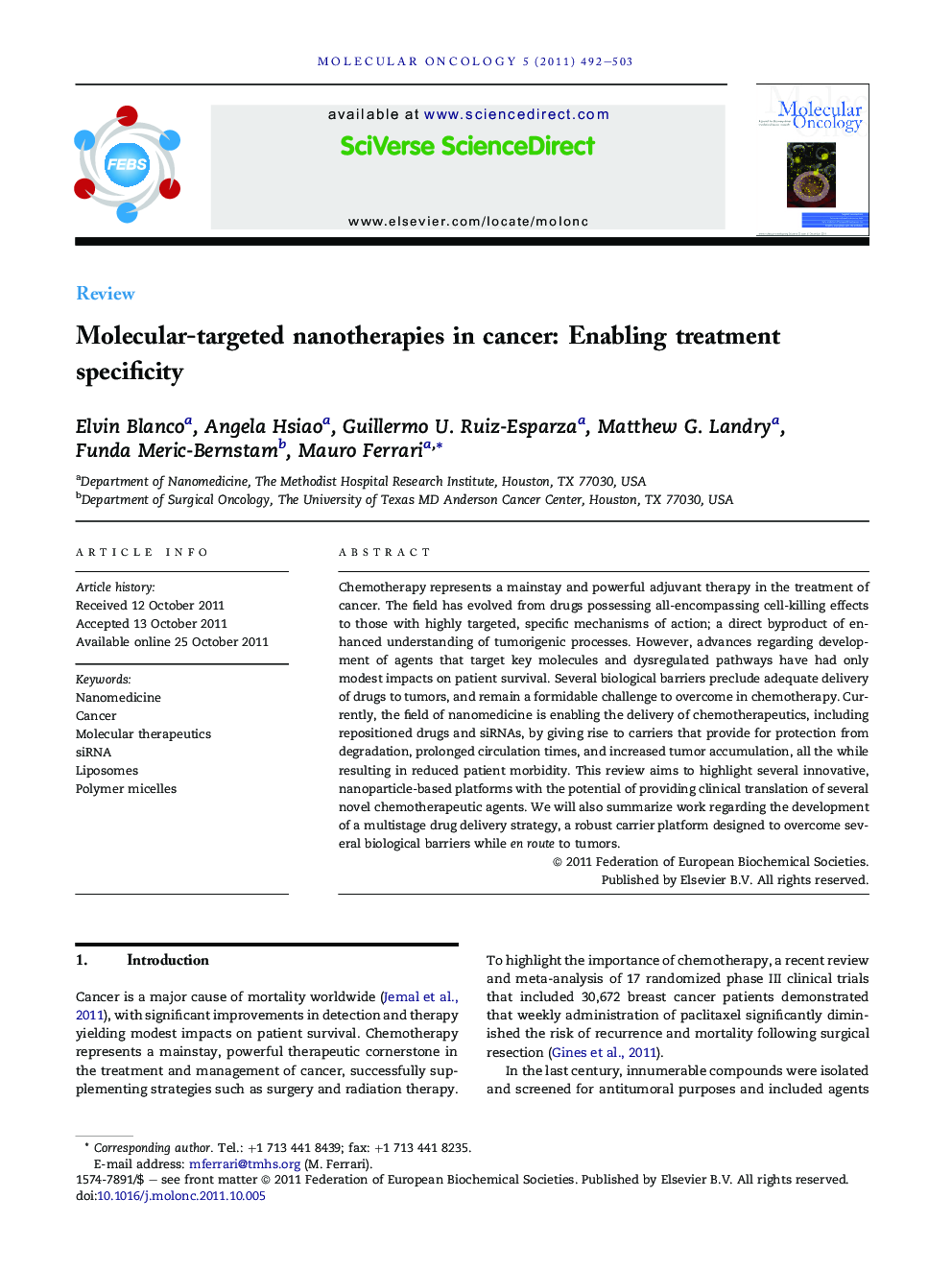| Article ID | Journal | Published Year | Pages | File Type |
|---|---|---|---|---|
| 2145640 | Molecular Oncology | 2011 | 12 Pages |
Chemotherapy represents a mainstay and powerful adjuvant therapy in the treatment of cancer. The field has evolved from drugs possessing all-encompassing cell-killing effects to those with highly targeted, specific mechanisms of action; a direct byproduct of enhanced understanding of tumorigenic processes. However, advances regarding development of agents that target key molecules and dysregulated pathways have had only modest impacts on patient survival. Several biological barriers preclude adequate delivery of drugs to tumors, and remain a formidable challenge to overcome in chemotherapy. Currently, the field of nanomedicine is enabling the delivery of chemotherapeutics, including repositioned drugs and siRNAs, by giving rise to carriers that provide for protection from degradation, prolonged circulation times, and increased tumor accumulation, all the while resulting in reduced patient morbidity. This review aims to highlight several innovative, nanoparticle-based platforms with the potential of providing clinical translation of several novel chemotherapeutic agents. We will also summarize work regarding the development of a multistage drug delivery strategy, a robust carrier platform designed to overcome several biological barriers while en route to tumors.
► Chemotherapy has transitioned to use of highly specific, molecular-targeted agents. ► Delivery of siRNAs and repositioned drugs still hampered by biological barriers. ► Nanomedicine platforms protect drugs from degradation, increase circulation times. ► Multistage drug delivery strategy enables site-specific, sustained release of drugs.
